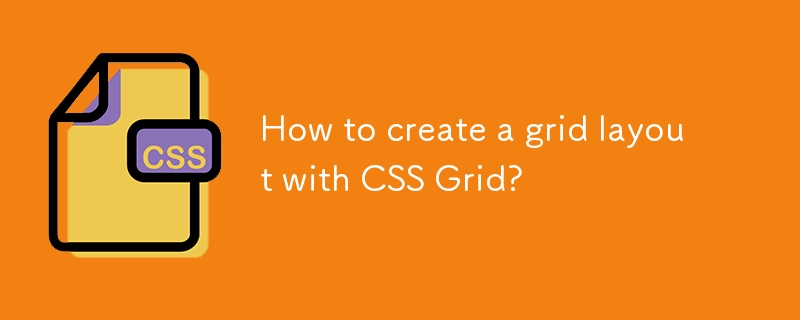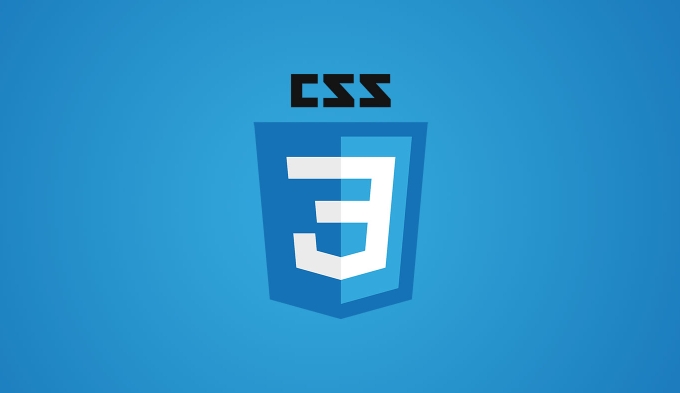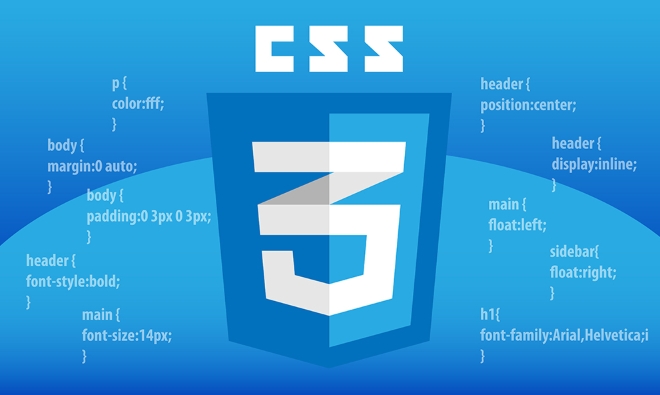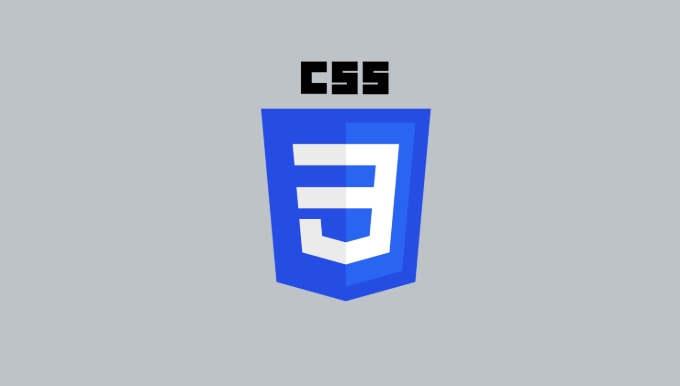To implement CSS Grid layout, you need to master five core steps: 1. Define the container and set the row and column structure, use display: grid to define columns and rows with grid-template-columns and grid-template-rows, and can also be simplified by repeat(); 2. Control the spacing and alignment, set row and column spacing through gap, justify-items and align-items to control overall alignment, justify-self and align-self to control children separately; 3. Use region naming to improve intuitiveness, name regions and allocate children through grid-template-areas; 4. Flexible position of child items, use grid-column and grid-row to specify span rows and columns, and support simplified writing of span keywords; 5. Practical application to familiarize yourself and master its flexibility and powerful functions through multiple attempts.

To implement CSS Grid layout, the key is to understand the basic properties of grid and their coordination. As long as you master several core concepts, you can quickly build a page layout with clear structure and flexible response.

Define containers and set row and column structure
The first step is to set a container to grid layout and use display: grid; . Then define the size of columns and rows through grid-template-columns and grid-template-rows .
for example:

.container {
display: grid;
grid-template-columns: 100px 200px auto;
grid-template-rows: 50px 100px;
} This creates a grid of three columns and two rows. You can also use repeat() to simplify the writing method, such as creating 3 columns with 1fr (equal divisions):
grid-template-columns: repeat(3, 1fr);
This is especially useful when doing responsive design.

Control spacing and alignment
After setting up the structure, it is usually necessary to adjust the gaps between the elements. You can use gap attribute to set the spacing between rows and columns, or use row-gap and column-gap respectively:
.container {
gap: 10px 20px; /* Row spacing 10px, column spacing 20px */
} In addition, justify-items and align-items can be used to control the alignment of child elements in cells:
-
justify-items: start | end | center | stretch -
align-items: start | end | center | stretch
If you only want to control the position of a child separately, you can use justify-self or align-self .
Use area naming to make the layout more intuitive
For complex layouts, you can name different regions through grid-template-areas , and then correspond to children into these regions.
For example:
.container {
display: grid;
grid-template-columns: 1fr 2fr;
grid-template-rows: auto auto;
grid-template-areas:
"header header"
"sidebar content";
}
.header {
grid-area: header;
}
.sidebar {
grid-area: sidebar;
}
.content {
grid-area: content;
}This method is suitable for the overall structure planning of the page, such as the header, sidebar, content area, etc., which is clear at a glance.
Flexible positioning of child items
In addition to sorting in order, you can also manually specify the location of the child items. Use grid-column and grid-row to make an element span multiple columns or rows:
.item {
grid-column: 1 / 3;
grid-row: 2 / 4;
}The above meaning is: this element starts from column 1, ends from column 3 (not including column 3), and starts from row 2, ends from row 4.
You can also use the span keyword to simplify the writing:
grid-column: 1 / span 2;
It means starting from column 1 and spanning 2 columns.
Basically that's it. After mastering these parts, you can meet most common grid layout needs. Although it may feel a bit complicated at the beginning, just try it a few more times and you will find that it is very powerful and flexible.
The above is the detailed content of How to create a grid layout with CSS Grid?. For more information, please follow other related articles on the PHP Chinese website!

Hot AI Tools

Undress AI Tool
Undress images for free

Undresser.AI Undress
AI-powered app for creating realistic nude photos

AI Clothes Remover
Online AI tool for removing clothes from photos.

Clothoff.io
AI clothes remover

Video Face Swap
Swap faces in any video effortlessly with our completely free AI face swap tool!

Hot Article

Hot Tools

Notepad++7.3.1
Easy-to-use and free code editor

SublimeText3 Chinese version
Chinese version, very easy to use

Zend Studio 13.0.1
Powerful PHP integrated development environment

Dreamweaver CS6
Visual web development tools

SublimeText3 Mac version
God-level code editing software (SublimeText3)

Hot Topics
 CSS tutorial for creating loading spinners and animations
Jul 07, 2025 am 12:07 AM
CSS tutorial for creating loading spinners and animations
Jul 07, 2025 am 12:07 AM
There are three ways to create a CSS loading rotator: 1. Use the basic rotator of borders to achieve simple animation through HTML and CSS; 2. Use a custom rotator of multiple points to achieve the jump effect through different delay times; 3. Add a rotator in the button and switch classes through JavaScript to display the loading status. Each approach emphasizes the importance of design details such as color, size, accessibility and performance optimization to enhance the user experience.
 Addressing CSS Browser Compatibility issues and prefixes
Jul 07, 2025 am 01:44 AM
Addressing CSS Browser Compatibility issues and prefixes
Jul 07, 2025 am 01:44 AM
To deal with CSS browser compatibility and prefix issues, you need to understand the differences in browser support and use vendor prefixes reasonably. 1. Understand common problems such as Flexbox and Grid support, position:sticky invalid, and animation performance is different; 2. Check CanIuse confirmation feature support status; 3. Correctly use -webkit-, -moz-, -ms-, -o- and other manufacturer prefixes; 4. It is recommended to use Autoprefixer to automatically add prefixes; 5. Install PostCSS and configure browserslist to specify the target browser; 6. Automatically handle compatibility during construction; 7. Modernizr detection features can be used for old projects; 8. No need to pursue consistency of all browsers,
 Creating custom shapes with css clip-path
Jul 09, 2025 am 01:29 AM
Creating custom shapes with css clip-path
Jul 09, 2025 am 01:29 AM
Use the clip-path attribute of CSS to crop elements into custom shapes, such as triangles, circular notches, polygons, etc., without relying on pictures or SVGs. Its advantages include: 1. Supports a variety of basic shapes such as circle, ellipse, polygon, etc.; 2. Responsive adjustment and adaptable to mobile terminals; 3. Easy to animation, and can be combined with hover or JavaScript to achieve dynamic effects; 4. It does not affect the layout flow, and only crops the display area. Common usages are such as circular clip-path:circle (50pxatcenter) and triangle clip-path:polygon (50%0%, 100 0%, 0 0%). Notice
 What is the difference between display: inline, display: block, and display: inline-block?
Jul 11, 2025 am 03:25 AM
What is the difference between display: inline, display: block, and display: inline-block?
Jul 11, 2025 am 03:25 AM
Themaindifferencesbetweendisplay:inline,block,andinline-blockinHTML/CSSarelayoutbehavior,spaceusage,andstylingcontrol.1.Inlineelementsflowwithtext,don’tstartonnewlines,ignorewidth/height,andonlyapplyhorizontalpadding/margins—idealforinlinetextstyling
 Styling visited links differently with CSS
Jul 11, 2025 am 03:26 AM
Styling visited links differently with CSS
Jul 11, 2025 am 03:26 AM
Setting the style of links you have visited can improve the user experience, especially in content-intensive websites to help users navigate better. 1. Use CSS's: visited pseudo-class to define the style of the visited link, such as color changes; 2. Note that the browser only allows modification of some attributes due to privacy restrictions; 3. The color selection should be coordinated with the overall style to avoid abruptness; 4. The mobile terminal may not display this effect, and it is recommended to combine it with other visual prompts such as icon auxiliary logos.
 What is the CSS Painting API?
Jul 04, 2025 am 02:16 AM
What is the CSS Painting API?
Jul 04, 2025 am 02:16 AM
TheCSSPaintingAPIenablesdynamicimagegenerationinCSSusingJavaScript.1.DeveloperscreateaPaintWorkletclasswithapaint()method.2.TheyregisteritviaregisterPaint().3.ThecustompaintfunctionisthenusedinCSSpropertieslikebackground-image.Thisallowsfordynamicvis
 How to create responsive images using CSS?
Jul 15, 2025 am 01:10 AM
How to create responsive images using CSS?
Jul 15, 2025 am 01:10 AM
To create responsive images using CSS, it can be mainly achieved through the following methods: 1. Use max-width:100% and height:auto to allow the image to adapt to the container width while maintaining the proportion; 2. Use HTML's srcset and sizes attributes to intelligently load the image sources adapted to different screens; 3. Use object-fit and object-position to control image cropping and focus display. Together, these methods ensure that the images are presented clearly and beautifully on different devices.
 What are common CSS browser inconsistencies?
Jul 26, 2025 am 07:04 AM
What are common CSS browser inconsistencies?
Jul 26, 2025 am 07:04 AM
Different browsers have differences in CSS parsing, resulting in inconsistent display effects, mainly including the default style difference, box model calculation method, Flexbox and Grid layout support level, and inconsistent behavior of certain CSS attributes. 1. The default style processing is inconsistent. The solution is to use CSSReset or Normalize.css to unify the initial style; 2. The box model calculation method of the old version of IE is different. It is recommended to use box-sizing:border-box in a unified manner; 3. Flexbox and Grid perform differently in edge cases or in old versions. More tests and use Autoprefixer; 4. Some CSS attribute behaviors are inconsistent. CanIuse must be consulted and downgraded.






